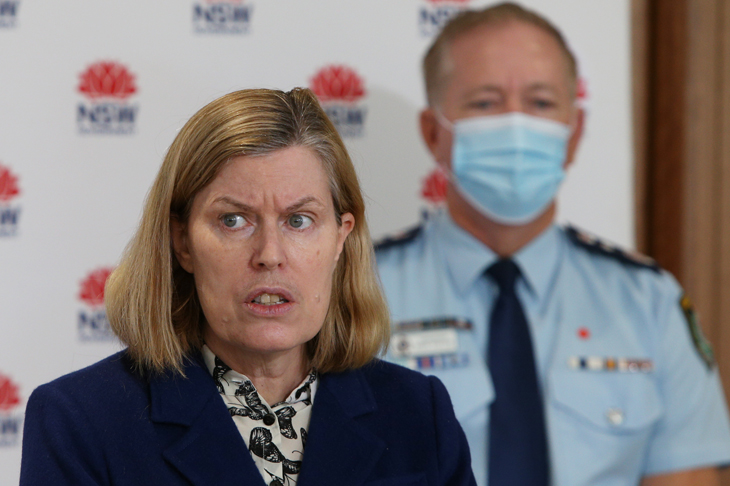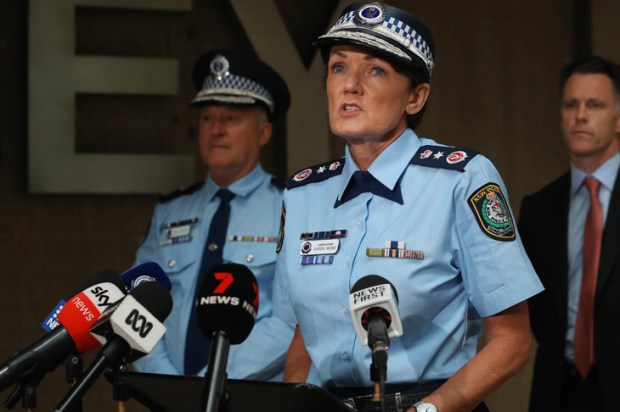For the first time I deeply fear for the future of my country. This fear arises not from existential threats and challenges but because Australia is being trashed by incompetent control freak leadership which has also succeeded in severely scaring much of our citizenship. Panic rules the day.
Thanks to being a large remote island and shutting international borders early in the pandemic, Australia has enjoyed a relatively low caseload, despite the best efforts of the Victorian government to run hotel quarantine in a style reminiscent of Fawlty Towers.
The initial pandemic management objective to ‘flatten the curve’ so as not to overwhelm our hospital system, has morphed into repeated lockdowns with a zero-tolerance of any community cases. Politicians have thankfully stopped using the initial slogan of ‘we’re all in this together’ which we all know is false and an insult to our intelligence.
On 25 July commenting on the Sydney lockdown, Prime Minister Scott Morrison said vaccines are not a substitute for lockdowns. ‘The vaccines can provide some assistance, but they’re not what is going to end this lockdown,’ he said.
Melbourne with over six months cumulative lockdown already holds the world record for the most locked down city and we’ve seen other cities locked down for a handful of community cases. Our state premiers are the world’s most reactionary in imposing panic lockdowns. The PM has signalled this is to continue.
There has been a complete loss of proportionality with Australian lockdowns doing much more harm than good and based on international data and experience, we now have impossible policy settings to sustain if we want life to return to normality. Our situation could now be described in the Eagles classic hit ‘Hotel California’, ‘you can check out anytime you like but you can never leave’.
The damage being done by lockdowns in smashing small businesses, disruption of education for kids, mental health problems including rise in self-harm and suicides, deferred routine health services resulting in delayed diagnoses of cancer and other illnesses – far exceed the harm caused by the virus. Australia may experience a wave of additional morbidity and mortality in the next few years due to cancers not being detected in 2020 and 2021 at Stage 1, but once they have spread to Stage 3 or 4. This could well affect thousands of patients.
Evidence of harmful unintended consequences continues to mount. In early July a rise in serious respiratory infections in New Zealand was attributed to ‘immunity debt’. Doctors say children haven’t been exposed to a range of bugs due to lockdowns, distancing and using sanitisers and their immune systems are suffering. Deaths due to alcohol-related liver disease jumped 21 per cent in the UK. Transplant surgery, such as kidney, is down 16 per cent in Australia. There is anecdotal evidence of weight gain in some groups.
Economic commentators have stated the projected $1.2 trillion debt will burden the next two generations. It also reduces our country’s flexibility to deal with future defence, health, and other challenges. It is a massive scandal that there has been no substantive comprehensive assessment of the total financial and health consequences of lockdowns.
The state premiers have reasonably criticised the slow vaccine supply in Australia and have focused almost exclusively on people getting the jab as a prerequisite way back to normal. In an interview on travel restrictions, Victorian Premier Andrews said on 29 June, ‘It wouldn’t be forever – just until we have got a critical mass of Victorians and Australians through the commonwealth’s vaccination program, and we got ourselves to the magic number… 70 or 80 per cent’.
Real world experience points to Australia’s policy being nonsensical in the medium-term. Recent data from Israel, the first country to vaccinate the majority of its population, is highly significant as case numbers of the Delta variant climb. Studies now show that vaccine-induced immunity fades significantly after just six months with protection from infection as low as 39 per cent. While not protected from a rising incidence, those who have been vaccinated retain significant protection of around 90 per cent from severe illness defined as requiring hospitalisation or causing death. However, vulnerable groups in Israel are already being called for their third jab. Naturally occurring immunity amongst those who have recovered from a coronavirus infection has greater longevity.
This has major policy implications for Australia. As vaccine-induced immunity declines and more variants emerge, there will inevitably be ongoing cases and outbreaks in the community even with a high proportion of the population vaccinated. We have heard no management plan from our political leaders or chief health officers for such a scenario. Pursuing the lockdown and zero-case policy will do untold economic, health and lifestyle damage to Australians.
As our leaders have not articulated a viable medium-term plan to live with coronavirus, let’s make a start in The Speccie by outlining a few common-sense principles. Firstly, recognise that Australian culture and lifestyle requires freedom of movement, association and activities. People enthusiastically choose activities which involve some risk to themselves and others which we tolerate and manage. We allow fishing, beach swimming, contact team sports and even driving motor vehicles. We allow people to live in the fire-prone Australian bush. There are endless examples which risk injury or death to individuals or others.
Coronavirus demands a multi-pronged risk mitigation and management strategy, not a fantasy risk elimination strategy, to allow Australian life to return. The vaccinations should certainly be encouraged, particularly for the older and those with health problems. Vaccination brand choice should be unrestricted, subject only to supply. There is indeed firm evidence supported by numerous published studies that triple therapies based on hydroxychloroquine or ivermectin can be effective treatments when used early and there should be no prescribing restrictions on doctors for use of these long-established and safe drugs.
All schools should be open. Masks of high quality and used well, not what we see typically in the community, provide some protection particularly in confined spaces. Hand sanitisers should continue to be widely available in retail and other public places.
Our governments urgently need a reality check and a Plan B to end the trashing of Australia and allow a return to normal quality of life.
Got something to add? Join the discussion and comment below.
Get 10 issues for just $10
Subscribe to The Spectator Australia today for the next 10 magazine issues, plus full online access, for just $10.
Dr David Adler is former Deputy Medical Secretary of the Australian Medical Association
You might disagree with half of it, but you’ll enjoy reading all of it. Try your first month for free, then just $2 a week for the remainder of your first year.














Comments
Don't miss out
Join the conversation with other Spectator Australia readers. Subscribe to leave a comment.
SUBSCRIBEAlready a subscriber? Log in